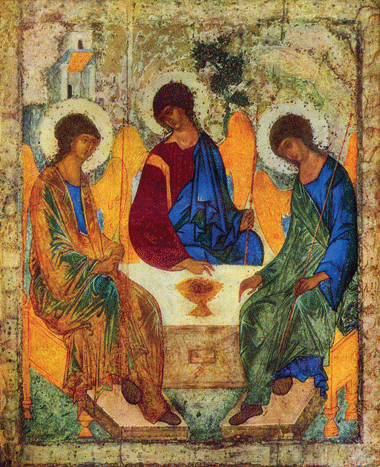 People have many different ideas about God's identity and character. Some think he's a mean old tyrant out to get us, while others view him as a cuddly teddy bear that would never make demands on our life. Some believe that while God created the world and everything in it, he is no longer interested in what happens to us.
People have many different ideas about God's identity and character. Some think he's a mean old tyrant out to get us, while others view him as a cuddly teddy bear that would never make demands on our life. Some believe that while God created the world and everything in it, he is no longer interested in what happens to us.
Perhaps the most incredible claim about God is that the man known in history as Jesus Christ is also the Creator of the universe. As Christians, we believe that in Jesus, God became flesh and walked among us so that we might have a better understanding of his character and plan of salvation. When Jesus ascended to Heaven, he promised that God would send his Spirit to be our comforter and guide. These truths are at the heart of our understanding of the Trinity.
In The Salvation Army, our third doctrine speaks of a personal and active God in a threefold way: “We believe that there are three persons in the Godhead—the Father, the Son and the Holy Ghost, undivided in essence and co-equal in power and glory.” Yet this definition of God's nature is not an explanation. It is when we try to explain the doctrine of the Trinity that things get complicated.
United but Distinct
How can we possibly claim that God is one in essence but then also argue that he has three modes of being in the Father, Son and Spirit? How could the man named Jesus also be the God who created the universe? These are difficult questions to answer.
Throughout Church history, people have used a variety of ways to try to explain the Trinity. For example, some have suggested God is like water which can exist in three modes: liquid, ice and vapour. Another traditional metaphor likens God to the human mind with its three elements: memory, understanding and will.
These illustrations are ultimately inadequate. God cannot be reduced in such a tidy and simplistic manner. The Triune God is one in unity but also three distinct persons who act simultaneously. The Father doesn't change into the Son, nor does the Son change into the Spirit. Rather, the Father, the Son and the Spirit are simultaneously one and distinct.
Allowing for Mystery
We must leave room for mystery when trying to understand and appreciate the Trinity. And in spite of the challenges, we must also continue to preserve and support this doctrine because, as Christians, we believe this is the particular way God has chosen to reveal himself in the world. In the Old Testament, for example, we see three distinct personifications of God: as Wisdom (Proverbs 1:20-33; Job 28; Ecclesiastes 2:12-16); as the Word (Psalm 119:89, 147:15-20; Isaiah 55:10-11); and as the Spirit (Isaiah 42:1-3; Ezekiel 26, 37:1-14).
It is in the New Testament, however, where God in three persons is fully revealed. In the Great Commission, for example, we plainly see the connection of the Father, Son and Spirit (see Matthew 28:19). Paul's benediction to the Corinthian community outlines the intimate connection between the three persons in the Godhead (2 Corinthians 13:14). Although the Bible does not use the term Trinity, taken as a whole, it presents a clear and particular understanding of God as three in one.
Love in Action
To recognize God as Triune has enormous implications for our belief and ministry. First, the Trinity means that God is alive and active in our world by his Spirit. He does not create us and then leave us to our own devices. God is still creating, transforming and empowering people, and inviting us to reach out to others with him.
The Trinity also demonstrates that God is a social being who exists in community. We were created not because God was lonely and needed humanity to fill some type of hole in his heart, but rather so we could share in the divine and eternal fellowship of the Father, Son and Spirit. Our existence is a gift from God and we are most human when we are sharing in his eternal community and inviting others to share in it as well.
A third purpose of the Trinity is to show God's self-giving love in Jesus. Through Christ's life, death and resurrection, God's very nature is displayed for the entire world to see. This love is not forced on anyone but it is available for everyone. In turn, God expects that we show this love to others and continue the mission of Jesus by being God's hands and feet in this world by the power of the Holy Spirit.
The doctrine of the Trinity is not mindless philosophical speculation about God. It is just the opposite. It is the way Christians have understood and articulated what we know about God and his actions in the world. Our God who is Father, Son and Spirit is deeply concerned for and involved with his creation and his people. He is not a god “out there” but a God “right here,” a God working and active, a God who continues to invite people into a fellowship with him that is like no other.









The article on the 'Trinity' by Captain Bramwell Pearce and its mystery was very helpful and practical ...I have been studying various thoughts and beliefs on the subject and our own SA doctrine on the subject plus ...I have has some debates and posted this article to my FB profile and I hope I have some comments!
God bless you